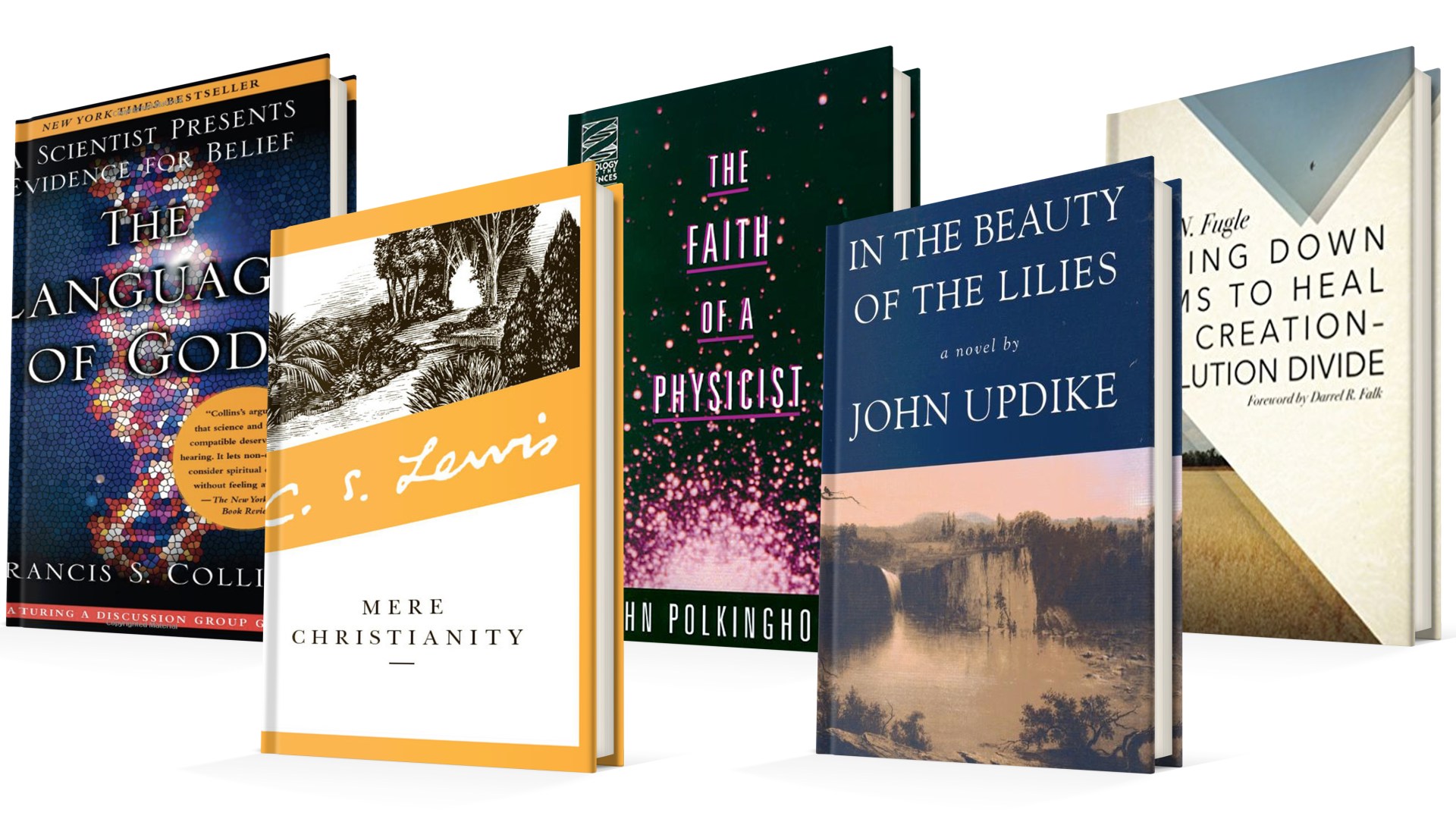Selected by Greg Cootsona, director of Science and Theology for Emerging Adult Ministries (STEAM) at Fuller Theological Seminary and author of Mere Science and Christian Faith: Bridging the Divide with Emerging Adults.
The Language of God , by Francis S. Collins
This is one of the finest books from one of the finest minds in science. With excellence and ease, Collins relates scientific discoveries with “mere Christianity.” (Being mutual fans of C. S. Lewis, I once had the serendipity of discussing these themes with him in person.) This book’s strong suit is genetics, one of Collins’s areas of specialization.
Mere Christianity, by C. S. Lewis
This is not a book about science and faith per se. Yet Lewis took up scientifically informed atheism and responded with a winsome articulation of faith. Many of Lewis’s insights were formed in the famous debates at the Oxford Socratic Club (some collected in God in the Dock). Even decades after its publication, Mere Christianity is still cited by leading voices in discussions about science and faith.
The Faith of a Physicist, by John C. Polkinghorne
It’s hard to decide between the many contributions of this particle physicist turned Anglican priest. But I’ll choose this volume, based on Polkinghorne’s 1993–94 Gifford Lectures at the University of Edinburgh. Structured around the Nicene Creed, the book confesses what “we believe” in light of contemporary science. The result is wonderfully and essentially orthodox, while leaving room for science to speak.
In the Beauty of the Lilies, by John Updike
Updike’s novel explores how certain technologies—particularly films—have affected American perceptions of reality. In the first of four sections, (each follows a different generation of the same family), the Presbyterian pastor Clarence Wilmot “felt the last particles of faith leave him. The sensation was distinct—a visceral surrender, a set of dark sparkling bubbles escaping upward.” This begins an eloquent and challenging narrative of American life in the 20th century.
Laying Down Arms to Heal the Creation-Evolution Divide, by Gary N. Fugle
Fugle, a biologist and master teacher, covers the landscape of why evolution makes sense and what it means for biblical interpretation. While studying evolutionary biology at UC Santa Barbara, he was stunned by the beauty and intricacy of God’s creation, and he became a Christian in the process. As a student commented after hearing Fugle lecture in a college science and religion class that I teach, he “opened my mind completely to the idea that it is possible to be a man of faith as well as science.”










